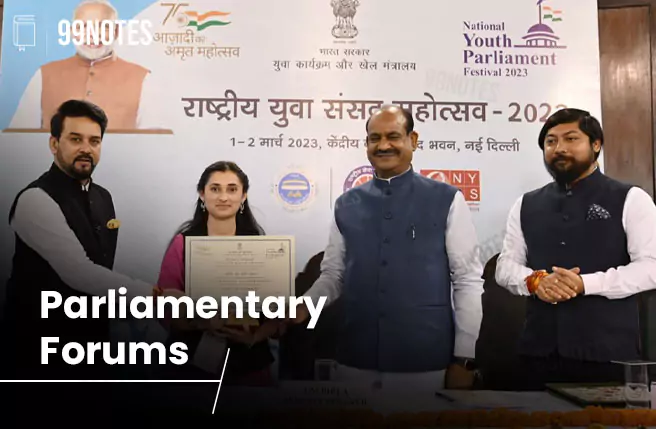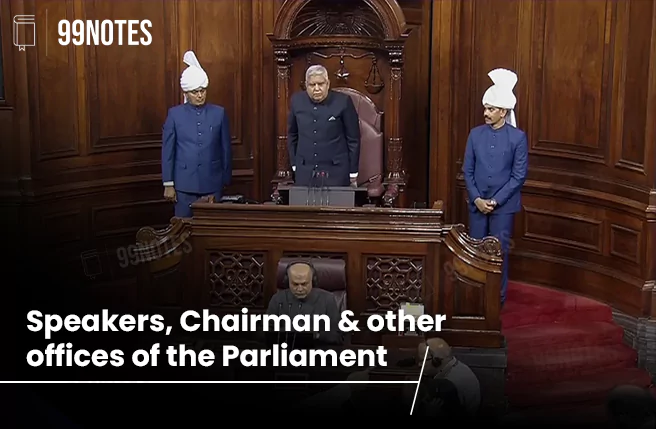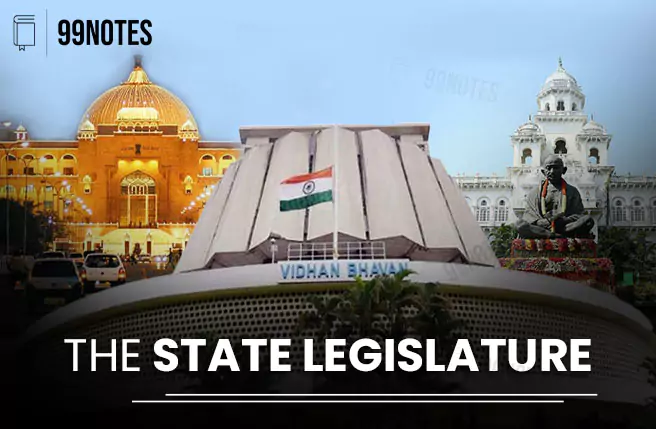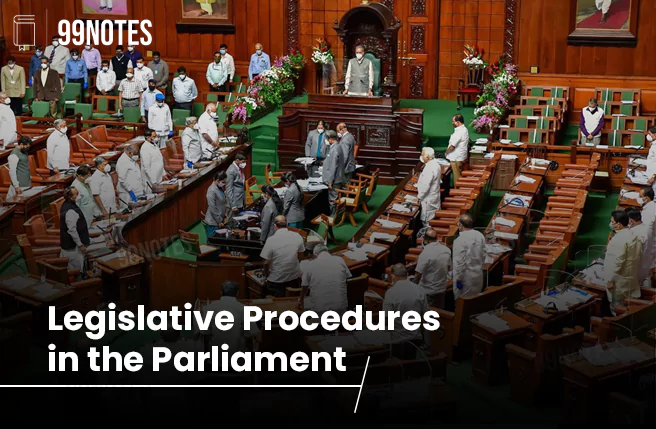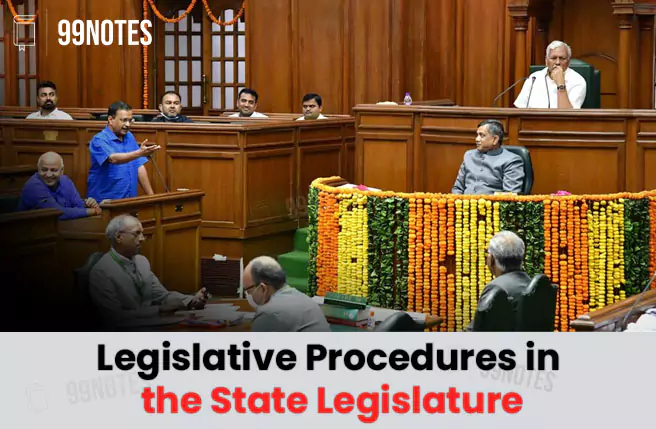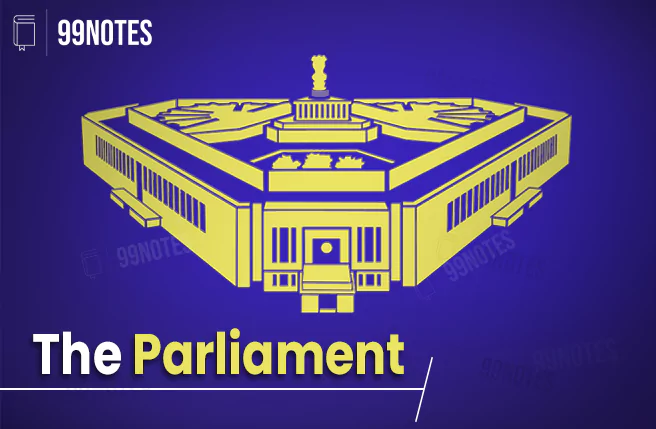Parliamentary Forums UPSC Notes
The Indian Parliament actively engages with the Indian and the world forums in order to share experiences and enhance Participation. In this context, the Indian Parliamentary Group (IPG) and the Youth Parliament have emerged as important associations.
Indian Parliamentary group:
In 1949, the Indian Parliamentary Group was formed as an autonomous body in pursuance of a motion adopted by the constituent assembly (legislative) on the 16th of August, 1948.
The inter-parliamentary group functions as the
1. National group of the Inter-parliamentary Union
| Inter-parliamentary group |
| It is the international organisation of the parliaments of the sovereign states.
Aim: To work for peace and cooperation among the peoples and for the firm establishment of representative institutions. It fosters contacts, coordination, and exchange of experience among the Parliament and parliamentarians of all countries and contributes to better knowledge of the workings of the representative institutions. |
2. The primary branch of the Commonwealth Parliamentary Association in India.
| Commonwealth parliamentary association |
| It is an Association of commonwealth parliamentarians with a mission to promote the advancement of parliamentary democracy by increasing knowledge and understanding of democratic governance.
|
Composition of the Indian Parliamentary Group:
- The membership of the IPG is open to all members of Parliament and ex-members of Parliament.
- The management and control of the affairs of the group are under the executive Committee consisting of the president, two vice presidents, the treasurer and 16 members.
- A member of Parliament (MP) can become a life member of the group on payment of a life subscription. On ceasing to be a member of Parliament (MP), a life member of the group is designated as an ‘ Associate Life Member’ with limited rights.
- The management and control of the affairs of the group are under the executive Committee.
- The Ex-officio president and the Ex-officio vice president of the group are the speaker, the deputy speaker, and the deputy chairman, respectively.
- The secretary general of Lok Sabha is the ex-officio secretary general of the group.
- The treasurer and members of the Executive Committee are elected at the annual general meeting from among the life members of the group.
Objectives of IPG:
The following are the aims and objectives of the group:
- To promote personal contact between members of Parliament
- To disseminate information to the members of the Parliament of India by conducting seminars, etc., on the issues that are likely to come up before Parliament.
- It arranges lectures on defence, political, social,economic, and educational problems.
- It also arranges visits to foreign countries with a view to developing contacts with members of other parliaments.
Functions of IPG:
- The inter-Parliamentary group acts as a link between the Parliament of India and the parliaments of the world
- Addresses to members of Parliament by the visiting heads of state and government of foreign countries and talks by eminent persons are arranged under the auspices of the group.
- Seminars and symposia on parliamentary subjects are organised periodically at the national and international levels.
- Continuous information is transferred to the members regarding the activities of the group.
- An award for outstanding parliamentarians was instituted in 1995, which is to be given annually.
| Parliamentary Friendship Groups |
| It has been constituted to encourage bilateral relations with other countries.
Each of these friendship groups shall consist of at least 22 sitting members of Parliament (15 from Lok Sabha and 7 from Rajya Sabha) in proportion to the strength of parties in Lok Sabha and Rajya Sabha. The aims and objectives of the group will be to maintain political and cultural contacts between the two countries and to assist in exchanging information and experience on issues relating to parliamentary activities. |
Youth Parliament
Youth parliament is a robust dialogue on democracy with a vision to engage and enlighten the country’s youth to understand politics and the functioning of Parliament. It was started on the recommendation of the fourth All India Whip Conference.
The objectives of the youth parliament are:
- To strengthen democracy and to enable the student community to understand the workings of Parliament.
- To expose the youth to politics, dialogue and democracy and provide them with a platform to understand and serve society.
- To enable the student community to cultivate a spirit of discipline and tolerance.
- To train a student in the technique of group discussion
- To create in students the quality of leadership. Understand the common person’s point of view and express a decision after group discussion.
- To create a forum where various stakeholders of the society can interact and debate upon various political and social issues and strive to create a path to the solution for the same.
- Necessary training and encouragement to the states while introducing the scheme is provided by the Ministry of Parliamentary Affairs.

